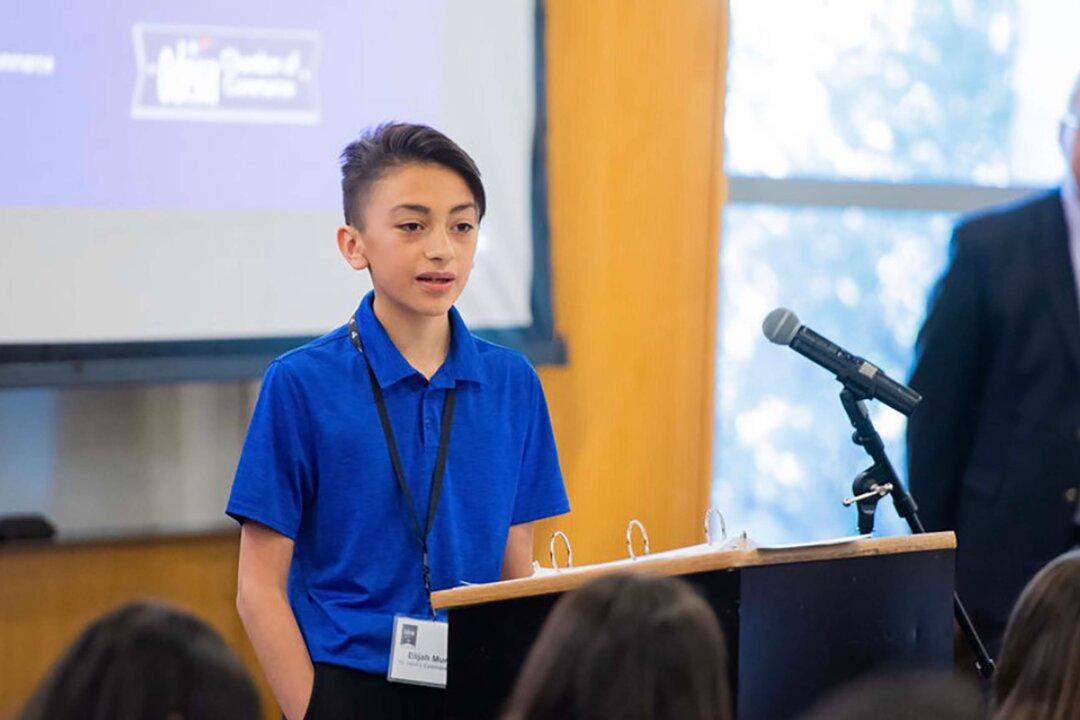TEXAS—A group of eighth-graders in Texas may hold the key to restoring civil debate to American Society.
“I just like listening to other peoples’ ideas,” Nathan Lackey, 15, of Pearland, Texas, told The Epoch Times.

TEXAS—A group of eighth-graders in Texas may hold the key to restoring civil debate to American Society.
“I just like listening to other peoples’ ideas,” Nathan Lackey, 15, of Pearland, Texas, told The Epoch Times.